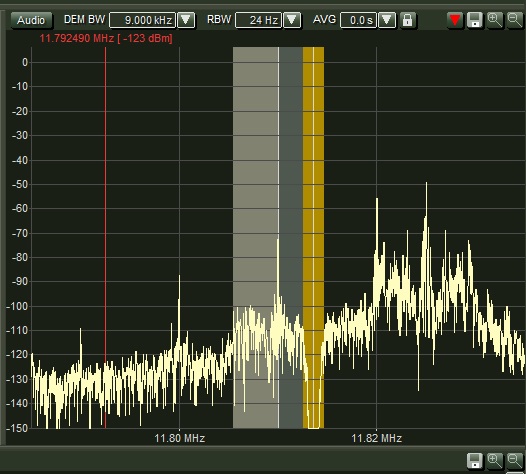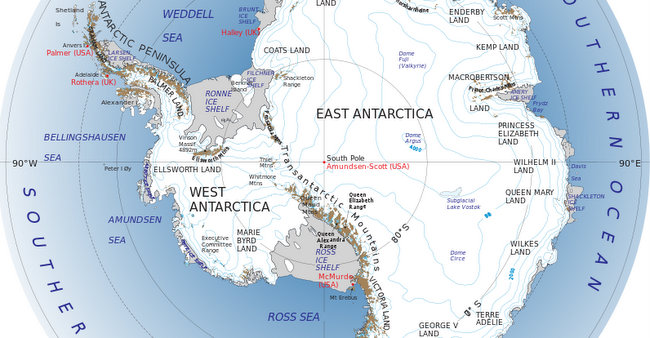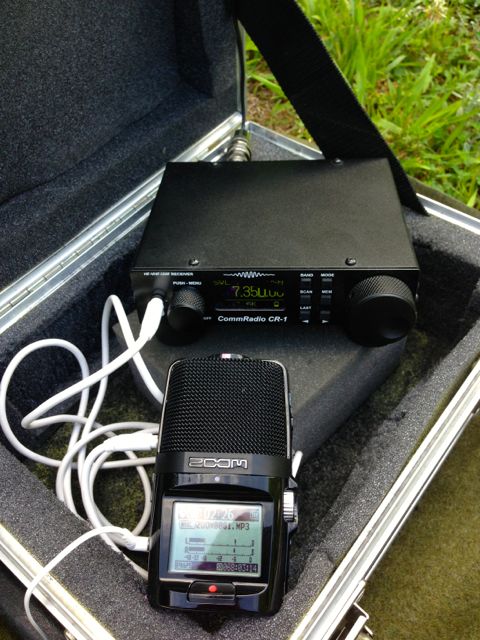 Many thanks to Mike Barraclough who shares this documentary about the BBC World Service from 1982: “Hang On, I’ll Just Speak to the World.”
Many thanks to Mike Barraclough who shares this documentary about the BBC World Service from 1982: “Hang On, I’ll Just Speak to the World.”
I’ve embedded video players and linked to each of the four parts on YouTube:

 Many thanks to SWLing Post reader, Richard Cuff, for sharing:
Many thanks to SWLing Post reader, Richard Cuff, for sharing:
(Source: BBC News)
The BBC’s News department is to axe 415 jobs as cost-cutting measures continue, the BBC’s director of news James Harding has announced.
The move is part of £800m efficiency savings required after the licence fee was frozen in 2010.
The latest cuts are expected to save £48m by 2017.
BBC News currently employs around 8,400 people, including around 5,000 journalists, based in London, around the UK and overseas.
He also set out plans to substantially restructure the news division and put the BBC at the forefront of producing news for the digital age using new technologies.
A total of 195 new posts will be created to fulfill this plan, meaning a net reduction of 220 full-time jobs overall.
Around 70% of the annual running costs of BBC News are staff-related, meaning there would inevitably be an impact in this area, Mr Harding said.
The article continues by outlining all of the cuts and gains to the BBC.
I took note that BBC Radio 4’s The World Tonight and the World Service program Newshour will be consolidated under a single editor. The BBC World Service’s budget, however, will increase from £245m this year to £250m in 2016-17. (Perhaps the most positive news in international broadcasting circles this week.)
Also check out Jonathan Mark’s comments on Critical Distance.
 Sunday was the FIFA World Cup Final, and not only was I looking forward to the game, but (to tell the truth) I was also looking forward to recording the game via the BBC World Service for the Shortwave Radio Audio Archive. Due to the BBC WS cuts, part of me fears this may be a last chance to capture this radio and sports history.
Sunday was the FIFA World Cup Final, and not only was I looking forward to the game, but (to tell the truth) I was also looking forward to recording the game via the BBC World Service for the Shortwave Radio Audio Archive. Due to the BBC WS cuts, part of me fears this may be a last chance to capture this radio and sports history.
If you would like to hear the recordings of the World Cup Final, skip to the bottom of this post. But if you want to know how I managed to make the recordings, and why I made the choices I did, feel free to continue reading…Warning: full-on radio geek tech ahead!
Making the recording
I had two SDRs (software defined radios) at my disposal: the Elad FDM-S2 and my trusty WinRadio Excalibur. To record this match, I choose to use an SDR rather than a tabletop receiver for several reasons, namely:
Propagation was rather mediocre Sunday, and there were only three feasible BBC World Service English frequencies I could tune in mid-afternoon, none of which, of course, were targeting North America:
My hunch was that either 13,660 or 15,400 kHz would be my best bet for the early part of the match (pre-game starting at 18:30 UTC, half time at 20:00 UTC), however, I knew they would drop off after the first half of the game. And 11,800 kHz would be my best bet in the latter part of the game, unless 9,915 kHz happened to be stronger.
In the past, 11,800 had served me quite well for afternoon BBC listening, but yesterday there was an unscheduled religious broadcaster on 11,825 that was causing interference a full 30 kHz on either side of their carrier! During my pre-game check of the frequency, each attempt I made to block this broad interference was unsuccessful–very frustrating.
Which SDR?
The FDM-S2 is a fine SDR, and I was very tempted put it to the test. But while the Elad FDM-S2 is quite capable of making very wide spectrum recordings (up to 6 MHz) and could easily record all four frequencies on four different meter bands at the same time, I decided to use the WinRadio Excalibur, instead.
Why? If 11,800 kHz was my only viable frequency option in the latter half of the game, I needed a receiver that could sync to the less noisy lower sideband of 11,800 kHz. While Elad plans to add USB/LSB selectable synchronous detection in the next version of their SDR application, it currently does not have this capability.
I suppose, too, I feel more comfortable with the WinRadio Excalibur; I’ve been using it now for well over two years. If something were to go wrong during the broadcast, I knew I could diagnose it quickly on the Excalibur.
In addition, the Excalibur can do both a spectrum recording and up to three individual AF recordings at the same time (though limited within a 2MHz bandwidth). I’m not sure if Elad has plans for this in their next SDR.
Setting up the Excalibur
The Excalibur only has a 2 MHz bandwidth for spectrum recordings. I knew if I focused on the middle frequency of 13,660, I would be able to record it and either 15,400 or 11,810 at the same time, but not all three.
The first half of the match, I recorded both 13,660 kHz and 15,400 kHz in a 2 MHz wide spectrum recording. At the same time, I recorded the audio (an AF recording) from 13,660 kHz, which was consistently the stronger of the two frequencies.
Half time
By 20:00 UTC, I knew both 13,660 and 15,400 kHz would stop transmitting and I would need to either hop to 11,810 kHz or 9,915 kHz.
While maintaining a good audio recording of 13,660, I stopped the 2 MHz spectrum recording and moved it to encompass 13,660 and 11,810 kHz. A quick check proved that 11,810 was the strongest station. Fortunately, the interference above 11,810 had quieted somewhat at that point, and by using the LSB sync lock, this noise was successfully mitigated a bit.
Still, I could hear a chuffing sound coming from the splatter 11,825 was producing. So I enabled the notch filter and widened it to 2 kHz. By shifting it around in the upper side band, I was able to find the “sweet spot” where most of the splatter noise was canceled. I then started the audio recording on 11,810 a few minutes prior to 20:00 UTC, making a little audio overlap with simultaneous recording on 13,660.

Syncing on the lower sideband and using the notch filter in the upper sideband mitigated most of the splatter interference.
In the end, I was very pleased with the results of the recordings. While capturing the BBC World Service isn’t exactly like snagging rare DX, I felt I had a lot riding on this recording, so pre-game preparations were necessary, especially since the Excalibur couldn’t record spectrum from 9,915 to 15,400 kHz.
And in theory, had I used the Elad FDM-S2, I could have recorded the entire chunk for three hours and then revisited the material later to make audio recordings from the AF.
For your listening pleasure: the full 2014 World Cup final via the BBC World Service. This broadcast is broken into 3 sections: pre-game and the first half, second half, and extra time. Enjoy!
 Yesterday, I was primed to follow the FIFA World Cup semi-final match featuring the Netherlands vs. Argentina. Moreover, we have good friends from Germany visiting; of course, they wanted to see who their winning team will be playing in the final match come Sunday.
Yesterday, I was primed to follow the FIFA World Cup semi-final match featuring the Netherlands vs. Argentina. Moreover, we have good friends from Germany visiting; of course, they wanted to see who their winning team will be playing in the final match come Sunday.
But as we live in a fairly rural area, and don’t place much of a priority on television (radio, anyone?), we have no cable, no satellite, and with no more than a rabbit-ear indoor antenna on our only telly, no local over-the-air broadcasters available. But we found we were able to watch the match stream live on ESPN via an Apple TV box attached to our only television.
Of course, I also tuned in the match on shortwave radio–via the BBC World Service on 11,810 kHz out of Ascension Island–starting a little after 20:00 UTC. And guess which stream was more “live” (i.e., immediate), ESPN or shortwave? Here’s the recording:
Answer: You guessed it–the shortwave coverage was one full minute in advance of the ESPN “live” stream. My friends watching television in another room marveled at my clairvoyance…
When the match went into extra time, as Argentina and the Netherlands were tied 0-0, the BBC World Service dropped the frequency to KBS (you’ll hear a few minutes of KBS in the recording). At this point I was resigned to watching the match on ESPN, as I didn’t want to miss any of the action while trying to find another broadcaster covering the match.
Then, radio to the rescue: I received the following tweet from SWLing Post reader/contributor @LondonShortwave:
Listening to ARG vs HOL live 6180 R.N.Amazônia http://t.co/grtot78JZ4 @SWLingDotCom @UlisK3LU @rya857 @adxb1159 @EA4004SWL @El_Radioescucha
— London Shortwave (@LondonShortwave) July 9, 2014
So I quickly tuned to Radio Nacional Amazonia on 6,180, where I discovered a booming signal and full match coverage. Even though the commentary was in Portuguese, a language I can’t speak, I could still follow the match knowing player and team names. When Argentina won the penalty kicks after extra time, commentators exploded with excitement. Listen for yourself:
What made the match all the better, besides watching it with my good friends here at home, was following it with my shortwave friends across the globe. As we exchanged tweets (while following coverage) it was as if we were all in the same room. Indeed, here’s what @LondonShortwave said:
@SWLingDotCom @UlisK3LU @rya857 @adxb1159 @EA4004SWL @El_Radioescucha love the fact we can all listen to the same signal so far apart!
— London Shortwave (@LondonShortwave) July 9, 2014
So true–! While using the Internet to communicate, we were listening to the same and far-more-efficient shortwave station for coverage.
Now on to Sunday, and hoping I can catch the final match on the BBC World Service…with the rest of the world. If you can, join us. Game on!
 Earlier today, I tuned to the BBC World Service on 17,830 kHz at 16:00 UTC, hoping they would be covering the USA vs. Germany game of the FIFA World Cup. I was pleased to hear World Cup coverage the moment I tuned in–but was a little disappointed that BBC had selected the Ghana vs. Portugal game. Still, I can’t complain; this BBC service is, after all, intended for Africa. And a lot was at stake for Ghana…
Earlier today, I tuned to the BBC World Service on 17,830 kHz at 16:00 UTC, hoping they would be covering the USA vs. Germany game of the FIFA World Cup. I was pleased to hear World Cup coverage the moment I tuned in–but was a little disappointed that BBC had selected the Ghana vs. Portugal game. Still, I can’t complain; this BBC service is, after all, intended for Africa. And a lot was at stake for Ghana…
So, I listened to the BBC coverage of that game while watching the USA vs Germany game stream over ESPN. I also watched a little of the Portugal/Ghana game, and realized I had an advantage over others streaming the game because the shortwave coverage from the BBC was almost 5 seconds ahead of the live stream. That’s the power of shortwave: goals at the speed of light!
For your listening pleasure, here is the full recording I made from the BBC World Service today. Click here to download the recording as an MP3, or simply listen via the embedded player below:
@SWLingDotCom it was about time you used that "goals at the speed of light" sentence 🙂 73
— ????? ????????? (@K7al_L3afta) June 26, 2014
 As promised, here are the recordings of the BBC World Service’s thirty minute broadcast to the British Antarctic Survey. The broadcast started at 21:30 UTC on June 21, 2014 and was broadcast on 5,875, 5,985, 7,350 and 9,890 kHz.
As promised, here are the recordings of the BBC World Service’s thirty minute broadcast to the British Antarctic Survey. The broadcast started at 21:30 UTC on June 21, 2014 and was broadcast on 5,875, 5,985, 7,350 and 9,890 kHz.
As in previous years, this broadcast was lighthearted, filled with humorous shout-outs from the team’s family and friends. Even a couple of special guests were included. Listen for yourself:
This excellent recording was made by SWLing Post reader, Dominik, in Europe:
Click here to download Dominik’s recording as an MP3.
Post reader Rob Wagner (VK3BVW), in Australia, could receive the broadcast on three frequencies (5,875, 5,985, and 7,350). He’s included clips of each broadcast on his excellent blog, The Mount Evelyn DX Report.
As for me, I was traveling to visit family yesterday afternoon when the broadcast started. I knew from listening endeavors on previous visits that receiving a broadcast indoors at their home is not feasible; there is some sort of power line noise in that area that overwhelms anything on the short or medium wave bands, unless the station is very strong.
To cope with this noise, I knew I would need to move my operation outdoors, away from the house, and employ an outdoor antenna. So I packed the following, all into my small flight case: the CommRadio CR-1, a NASA PA-30 15 foot passive wide-band wire antenna, and the Zoom H2n Handy Recorder
.

I hung the PA-30 antenna in a nearby tree, spread a wool army blanket on the ground for lounging, and put the mini flight case to use as a stand to hold the radio and recorder. The CR-1 required no external power supply, as its internal battery had been charged in advance (one of the reasons I love this little receiver for travel).
To try out the set-up, I tuned around the bands. Conditions were rough, thunderstorms were in the region, but I was most impressed that I could hear several broadcasters on 31 meters. I knew that the BBC broadcast would be a tough catch; after all, none of their transmissions were targeting my part of the globe–rather, the opposite!
When I tuned to the BBC broadcast on 7,350 kHz, here’s what I heard:
This is (very) rough copy; for five or so minutes, you’ll hear me switching between AM/USB and LSB to find the best mode for the signal. I also check the other BBC frequencies to see if any were more audible.
In the end, using ECSS (zero-beating the signal in USB) seemed to work best.
For fun, I had also brought along the Tecsun PL-660–a choice portable radio for weak signal DX. I tuned to 7,350 and could just hear the BBC signal in the noise, but voice and music were unintelligible.
What did I get out of the experience? Good copy? Alas, no.
But there’s nothing like the fun of playing radio outdoors! Even though the copy was rough, propagation deplorable, and static crashes abundant, I thoroughly enjoyed the experience. Moreover, I was amused to note that while I listened (and sweated) outside in the very hot, muggy conditions of the American southeast, a few scientists huddled near the extremely chilly southern pole at that exact moment, were tuning in the exact same broadcast. It somehow made the heat bearable.
That’s the remarkable camaraderie of radio: truly, a wireless community.
Every year, the BBC broadcasts a special program to the 41 scientists and support staff in the British Antarctic Survey Team.
The BBC will play music requests and send special messages to the team who winter over in this isolated post. The broadcast is guaranteed to be quirky, nostalgic and certainly DX worth catching. Click here to listen to the 2013 broadcast.
The winter program will air today, June 21, 2014 at 21:30 UTC on the following frequencies:
Readers: If you have a chance, try to record the broadcast as I’m uncertain if I’ll have a chance to catch it this year. I would like a good recording for the Shortwave Radio Audio Archive.
Many thanks!